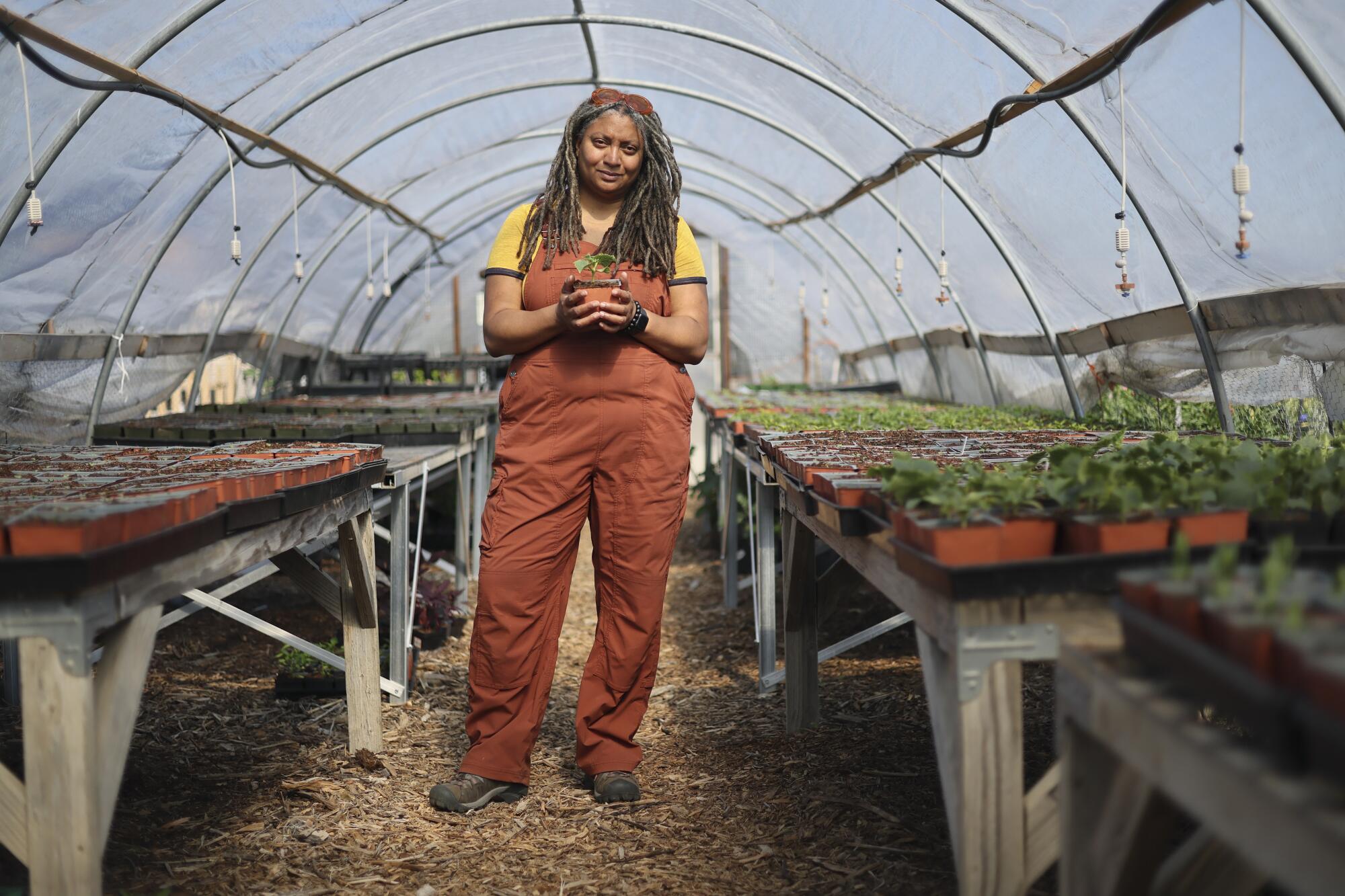
- Share via
NORTH RICHMOND, Calif. — For more than half a century, Satoko Nabeta has lived in a small, well-kept house at the edge of plant nurseries on a breezy, forlorn block in North Richmond.
But her husband and her in-laws who lived with them in the Bay Area community died, and her children long ago grew up and moved out. The family business — part of the once-booming Japanese American cut flower industry — faded away as well.
Nabeta has a no-nonsense directness that she leavens with a warm smile. Although she is in her 90s, she still manages to keep her home spotless. The wood floors gleam. Family photos fill every open space on the refrigerator door. By the fireplace is a polished sculpture her father-in-law made from objects he found while locked up at a World War II incarceration camp in Utah. Well-trained flower bushes sit outside like sentries.
But recently, Nabeta decided she was finally ready to move. And thanks to the online shopping boom, her land is worth potentially millions of dollars. It is a prime spot for a distribution center, where goods can be stored days or hours before online shoppers click “buy.”
It seemed, at long last, like a good twist of fortune.
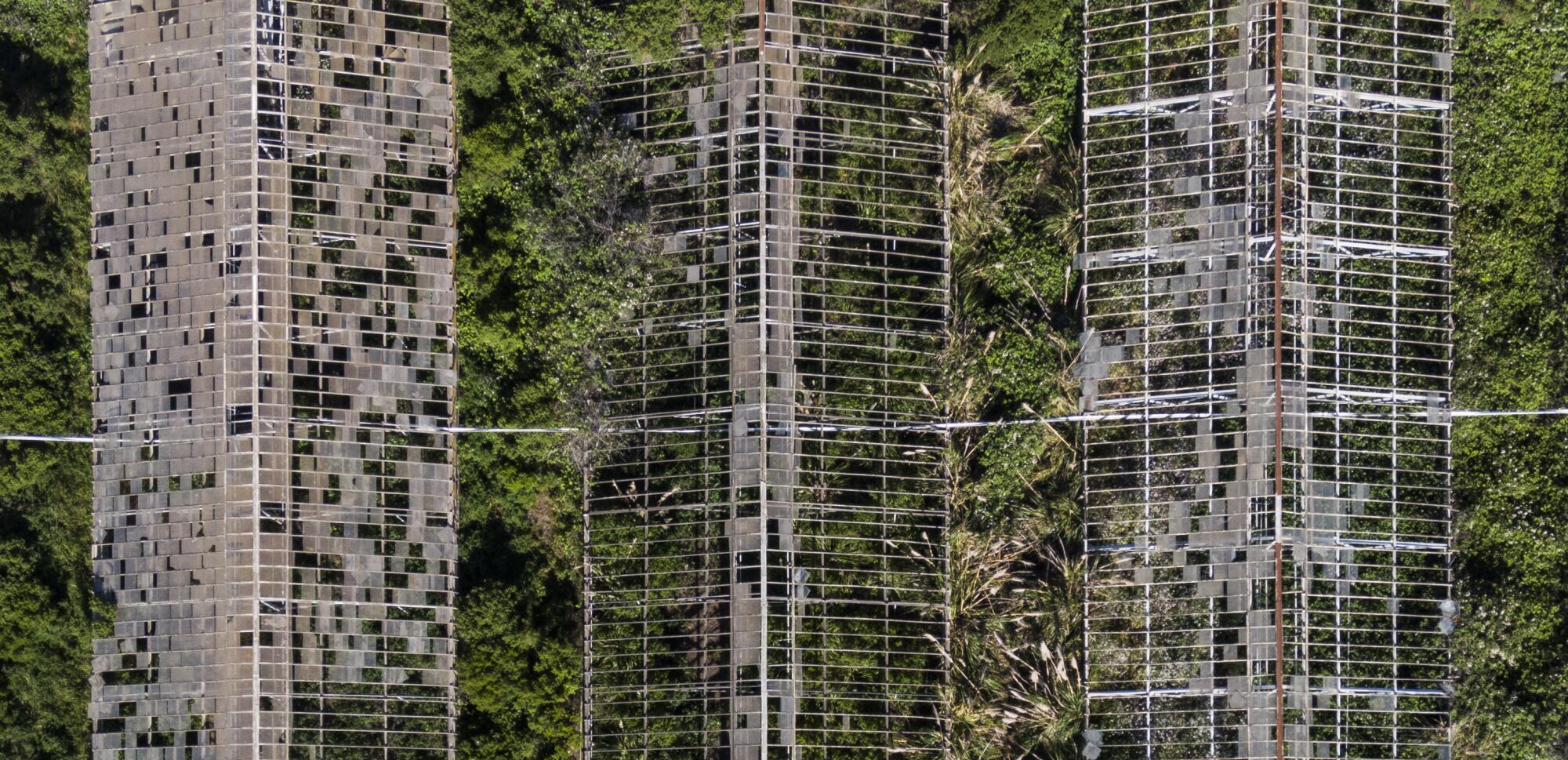
Except, alas, from the perspective of the managers of a nearby community farm, dedicated to growing fresh produce for underserved people in nearby Richmond. To them, Nabeta’s lucrative retirement opportunity felt like a body blow to their dreams.
As “fulfillment centers” and other warehouses have marched into more populated communities across California, they have often sparked heated debates about air pollution, traffic and whether the industry offers jobs that help the neighborhoods where they take root.
The battle in North Richmond features all this, but also adds a wrenching question: What if one group’s battle for empowerment blocks the dreams of someone else, someone who also has an equally strong claim for justice?
It is a question with special resonance in this community, which has for so long been a place where oppressed people wound up because they were pushed out of other places.
::
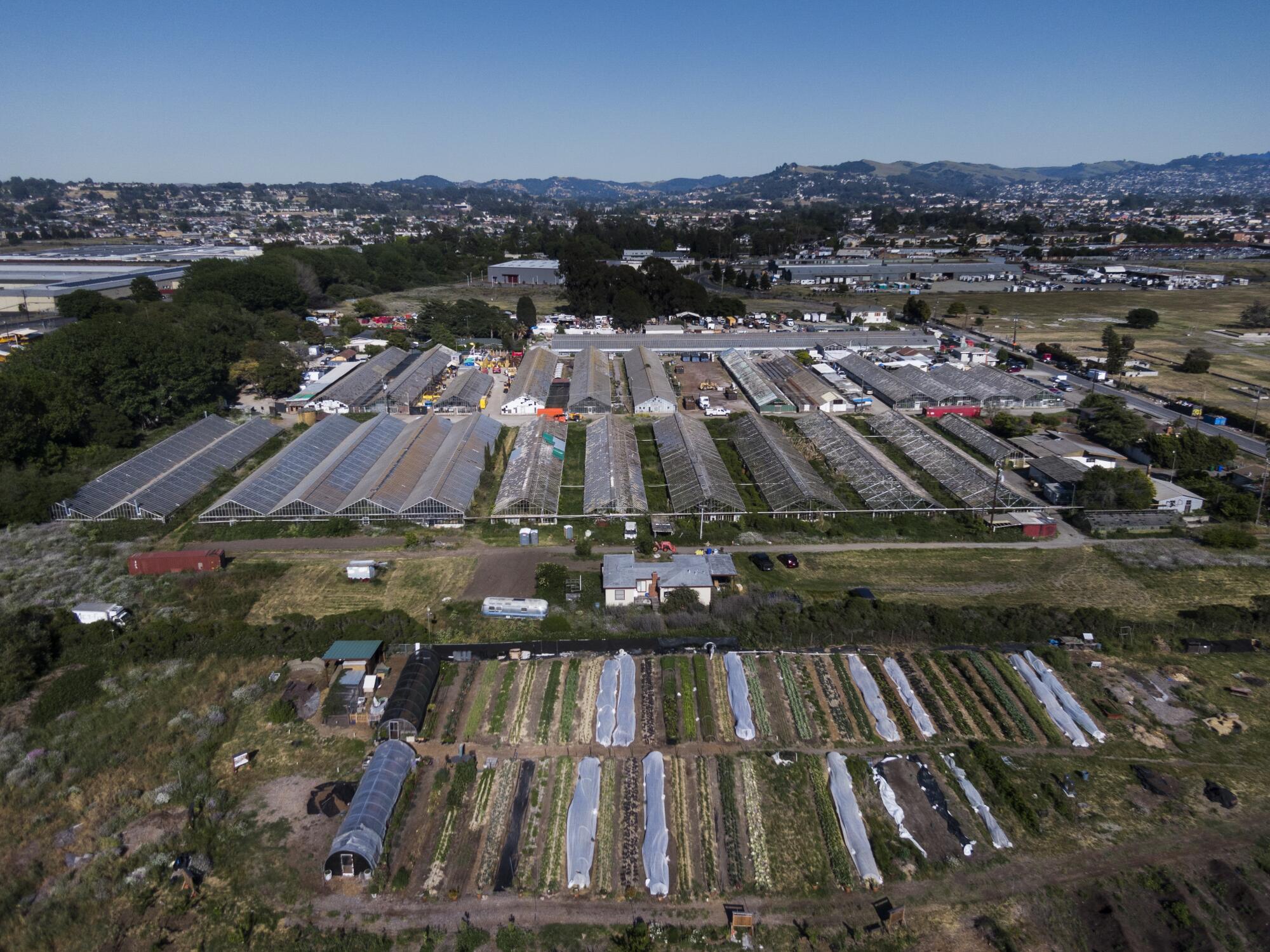
Near Nabeta’s quiet home, Urban Tilth, the nonprofit farm, hummed with activity. Young people chatted as they picked kale and greens and packaged them for delivery. Others tended dozens of young fruit trees, exploding with flower buds in a riot of pinks. Children scampered about among benches painted to look like rainbows, learning about plants.
Watching over it all, Doria Robinson, the farm’s executive director, fielded questions from a seemingly endless list of people, a soft smile never leaving her face. Robinson, 48, has been executive director of Urban Tilth since 2008, and has grown the organization from a tiny gardening operation to a giant force not only in food but of community.
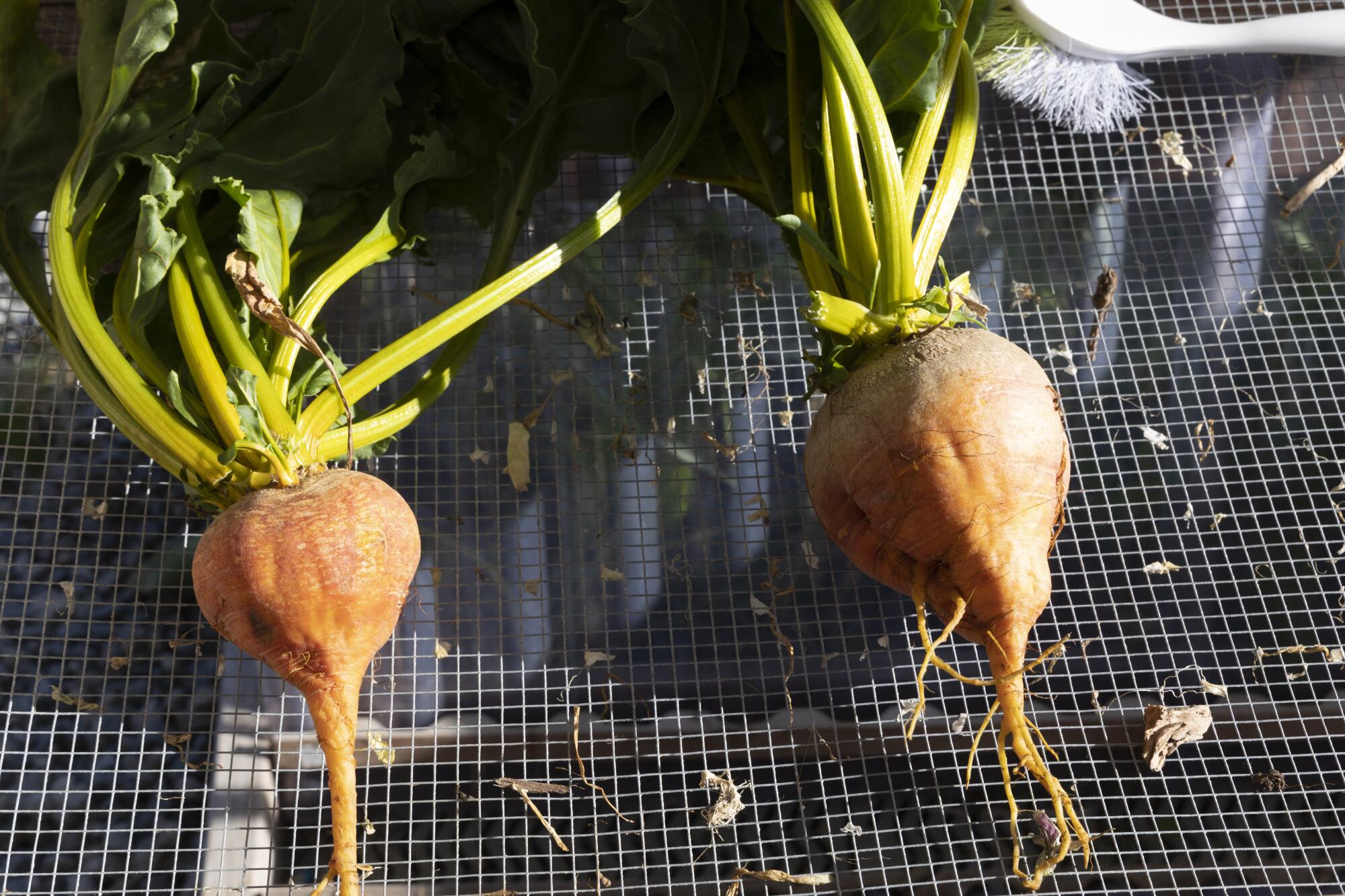
The farm distributes produce to more than 500 families each week, operates six school and community gardens and employs more than 50 people, 90% of them people of color. Robinson views it as a counterweight to the environmental degradation and poverty that has so often afflicted Richmond, one of the poorest communities in the Bay Area. In part in tribute to these efforts, Gov. Gavin Newsom just appointed Robinson to the State Board of Food and Agriculture, the first Black woman in the panel’s history.
In one way or another, Robinson has been working for justice in Richmond since she was a child, the granddaughter of a pastor and the great-granddaughter of a woman who came from Louisiana to work in the area’s shipyards during World War II.
A pivotal moment, she has said, came in her teens, when she realized that her public school was both violent and a sign of a failing education system.
“It makes a huge impact on you if all the kids you grew up with on your block are dead,” she said in a 2018 interview with the Sierra Club. “That’s what happened to me.”
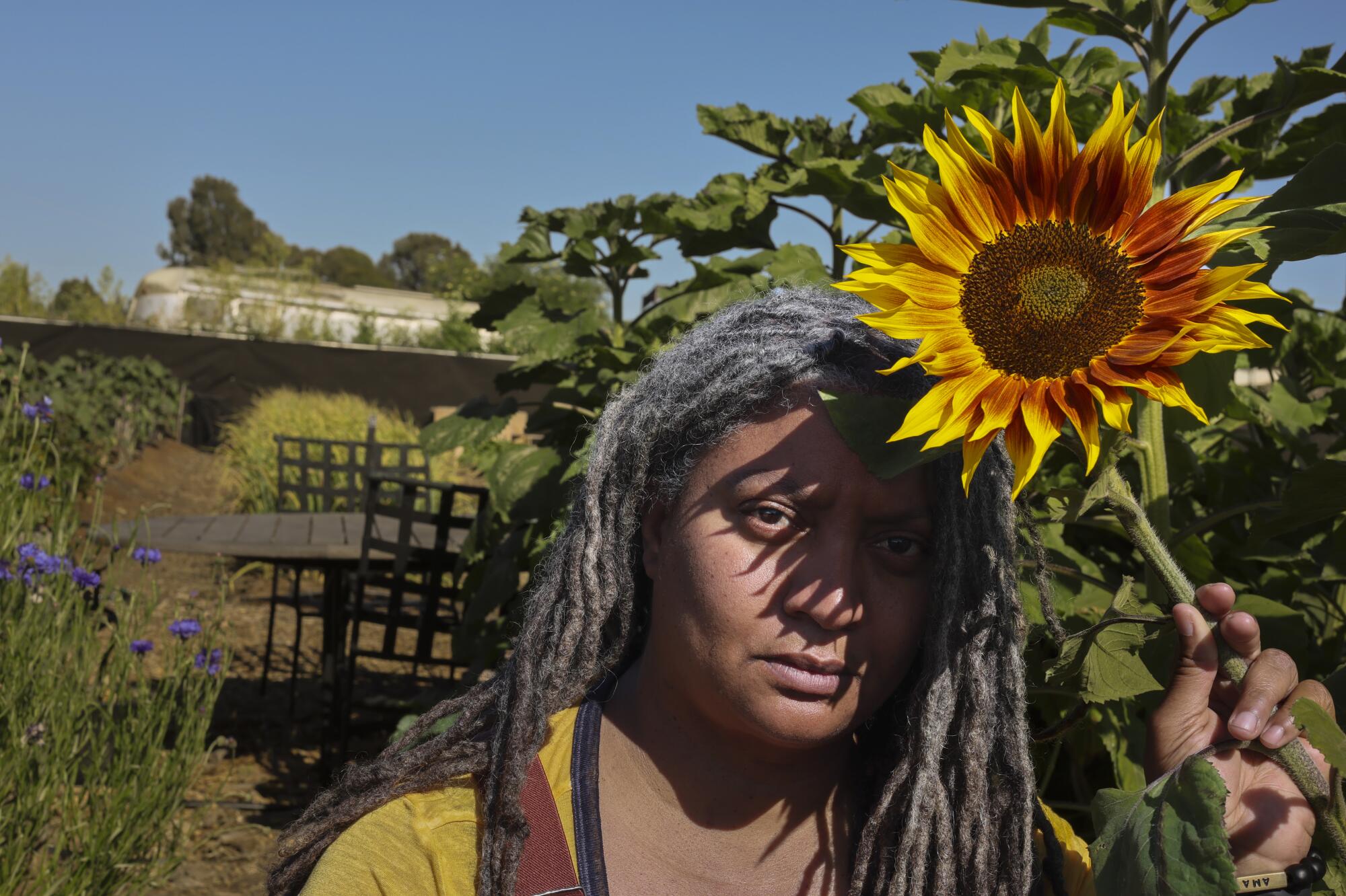
She recounted a lunchtime shooting at her high school in Richmond, after which she “walked off campus, and didn’t come back.” She transferred to a private school in Berkeley, where her A’s turned to Fs, because, she said, her school had left her unprepared for more demanding work.
But Robinson eventually triumphed: She pulled up her grades, went to Hampshire College in Massachusetts and returned to California to work in the dot-com world. But Richmond — and a desire to make her hometown better — called to her.
Last fall, Robinson finally achieved her dream. Urban Tilth was able to purchase the land it had been renting for its farm. Robinson and other farm leaders had big plans: a cafe, a reflection garden, an amphitheater.
But just at the moment of celebration came disturbing news: Six distributions centers were in various stages of development in the surrounding area — a building boom driven by America’s changing shopping habits, which were accelerated by the pandemic. Warehouses are moving in all over the Bay Area, but North Richmond, with its empty, relatively cheap land near freeways, is ground zero.
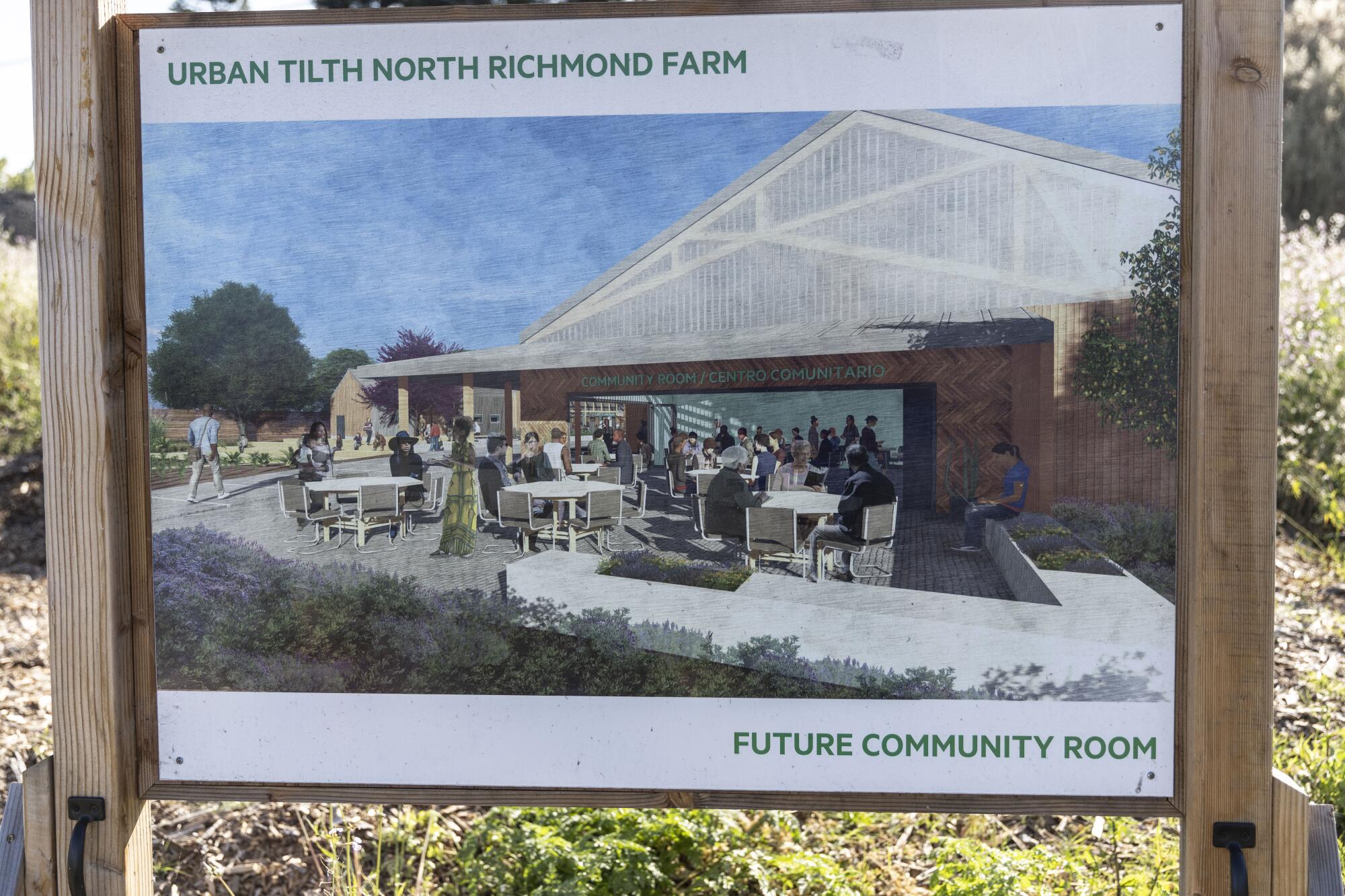
Robinson and her fellow advocates stared at the maps, aghast. A warehouse was slated for the land across the street. And down the block. And around the corner. She shuddered to think how many trucks would trundle by every day. It seemed so unfair, especially because Richmond, home to a Chevron refinery, was already overburdened with air pollution.
Robinson quickly realized that the biggest threat potentially came from a proposed project where developers wanted to erect a structure so large it would block the sun from the farm’s plants for up to four hours a day.
Robinson and other advocates launched a battle. They held demonstrations. They talked to the media. They reached out to elected officials.
Last month, they launched a “Twitter storm” targeting the developer, Panattoni. “Richmond never asked for another warehouse, fulfillment center or profit hungry company to set up shop next to your homes, schools and farm,” read one tweet. “We want a future where we can breathe.”
In a letter, the farm also argued that the development would eradicate a little-known but important piece of local history: the greenhouses on one of the last remnants of the area’s Japanese American flower-growing past.
There was just one problem with this particular argument: The owner of those historic greenhouses was Satoko Nabeta, and selling them felt like the only way she could afford a place to live out her retirement.
“If I don’t sell it, I can’t buy a place,” Nabeta said. “I have to pay taxes, and it’s unproductive. What choice do I have? If I can’t pay the property taxes, I’d have to default and give it to the county. And then I’ll have nothing.”
::
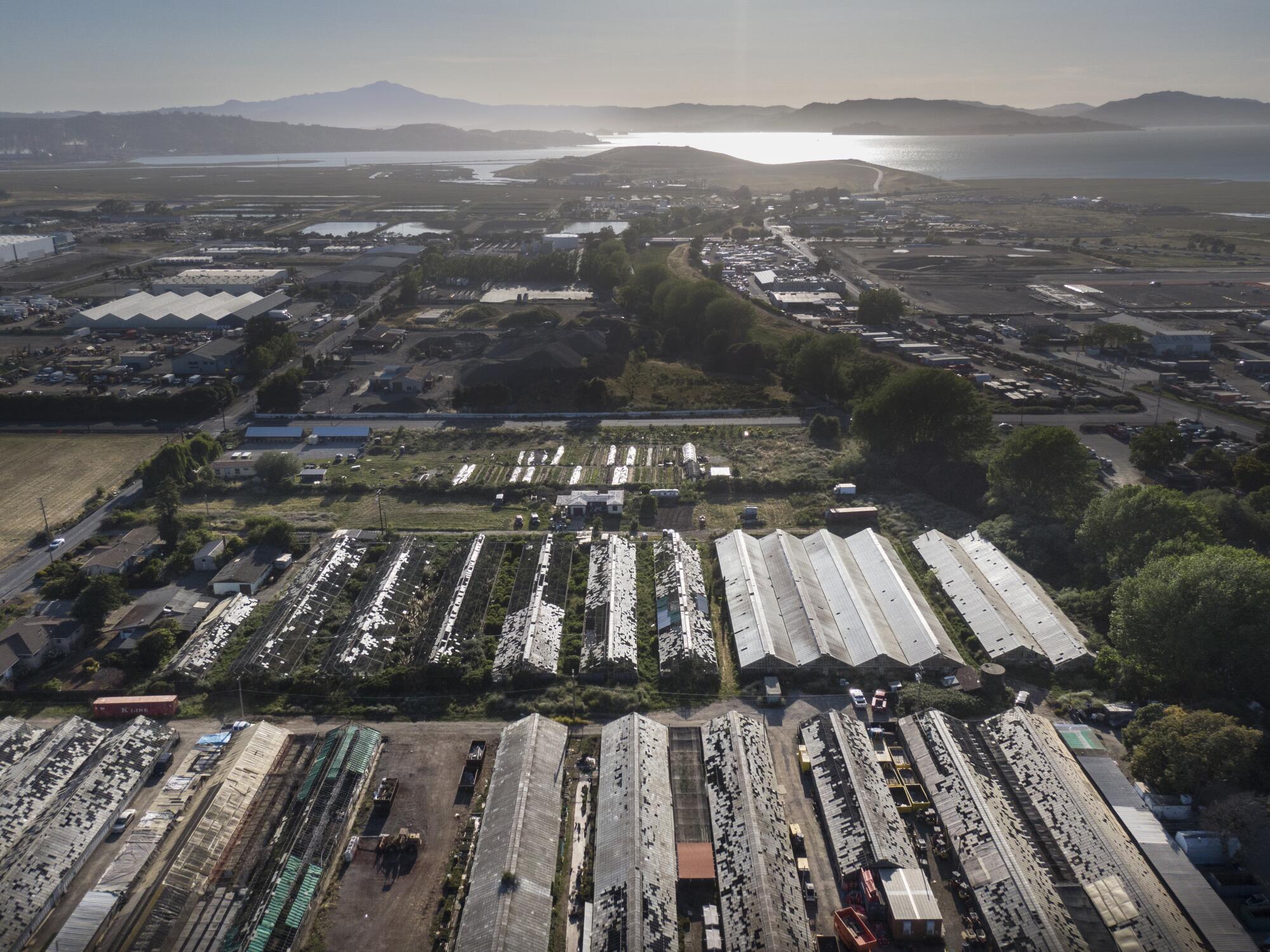
Tucked at the northwest end of Richmond and bordered by marshlands that dissolve into San Francisco Bay, North Richmond is unincorporated, impoverished, sometimes violent, and rich in history.
A hundred years ago, it was mostly agricultural. Italian, Asian, Portuguese and other farmers grew cabbage and lettuce. But when World War II came and Richmond became a shipbuilding mecca, thousands of Black workers came from Louisiana and other parts of the South for jobs.
Because of racist laws, they were locked out of much of the housing in Richmond and surrounding areas, and so settled in North Richmond.
“They brought their Southern roots,” said Doug Harris, a filmmaker who made a multipart documentary about North Richmond, with contributions from dozens of community youths. “It looked like you’re down in Texas or Mississippi or somewhere.”
It was also perennially neglected, lacking streetlights, community services or robust protection from law enforcement.
The Nabeta family arrived in the 1950s.
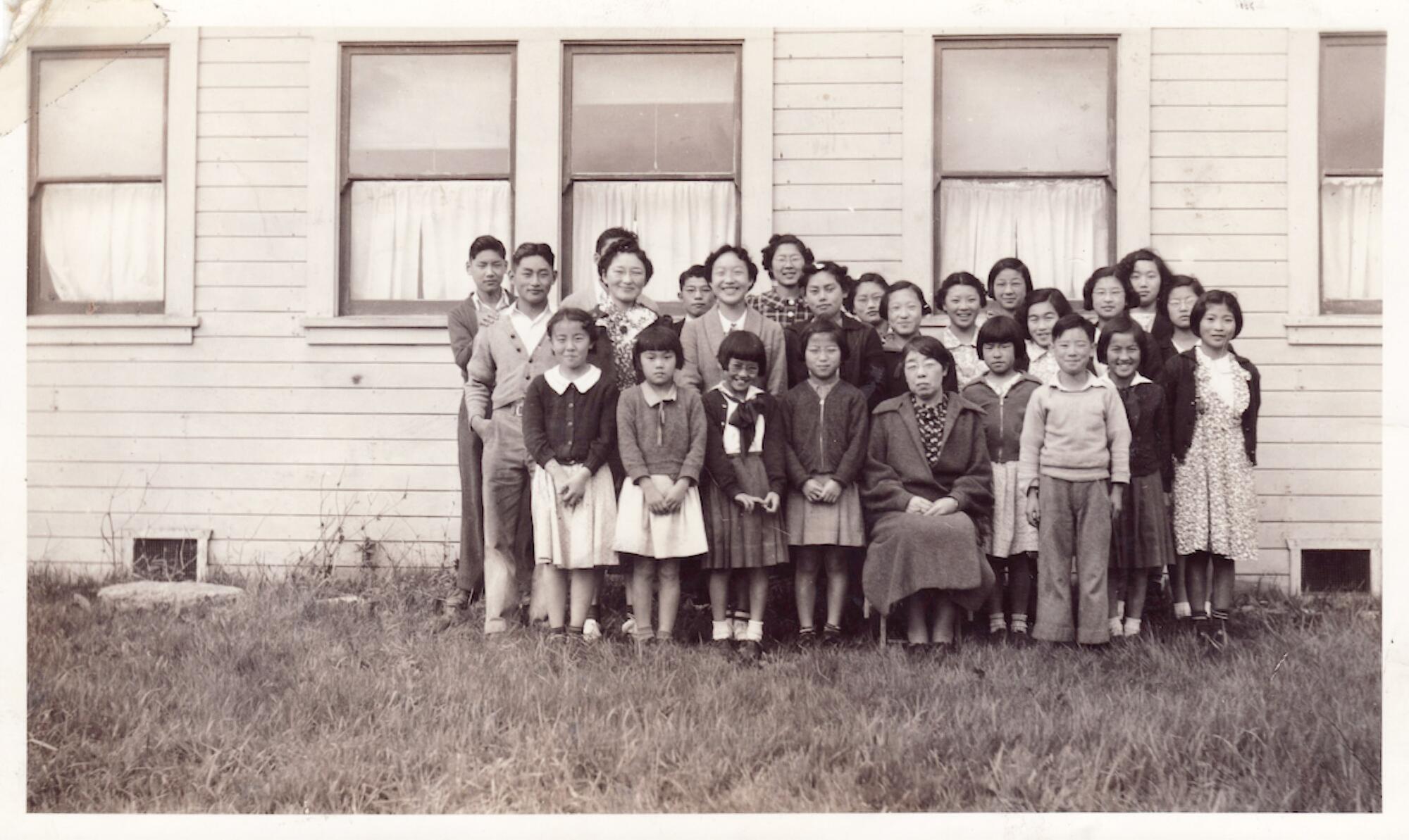
The family had originally settled in El Cerrito, among a group of Japanese American farmers who helped the region’s flower industry flourish in the early 20th century. Yataro Nabeta, who had come from Japan around 1892, set up a nursery near Berkeley. Satoko Nabeta’s husband, Toshiro, was Yataro’s grandson.
The couple had met in Illinois, after both were released from the camps where they’d been locked up in World War II.
The family returned to the Bay Area after the war, only to discover that their nursery property had been vandalized and was “essentially destroyed,” according to the El Cerrito Historical Society.
Then, their misfortune compounded. The land was seized by the government for what became Interstate 80. The Nabetas donated the little slip of their land that wasn’t needed for the freeway to the East Bay Free Methodist Church, which is still there today, and moved to North Richmond to grow flowers.

Outside the nursery, North Richmond, with a population of only around 3,000, was known as “Dodge City” and on its way to becoming one of the most violent communities in the United States.
But North Richmond was also rich in culture and the heady politics of the time. It was known for the blues, its nightclubs an important stop for traveling musicians. And in 1967, one of the first big campaigns of the new Black Panther Party involved investigating the killing of a North Richmond man by Contra Costa County sheriff’s deputies.
The Nabetas stayed out of that.
According to Donna Graves, a historian who has studied the Japanese nurseries of the Bay Area and helped produce an exhibit and film on them for the Rosie the Riveter WWII/Home Front National Historic Park in Richmond, Japanese immigrants got into flowers in part because they could be grown quickly — an advantage for a community where many immigrants weren’t allowed to own land because of racist laws. (The Nabetas were an exception because their first family members arrived in the 1890s, before those laws were put in place.)
The flowers were grown in glass greenhouses, their panes painted white to filter the light. It was hauntingly beautiful inside — white light, bursting with colorful blooms, suffused with floral scents.
But the beauty belied the backbreaking work that went into the business, and in time more and more Japanese families left the industry. By the 1970s, the children of many nursery owners had more options. They could go to college and become professionals, as many in the Nabeta family did.
Other pressures buffeted the industry too. Labor and environmental laws in California made the business more expensive, and cheap flowers from South America — subsidized by the U.S. government — undercut prices.
Not to mention that the value of farmland just went up and up.
“They called it growing condos,” Graves said, selling the land for housing.
Now, she said, the Nabetas are among the last.
::
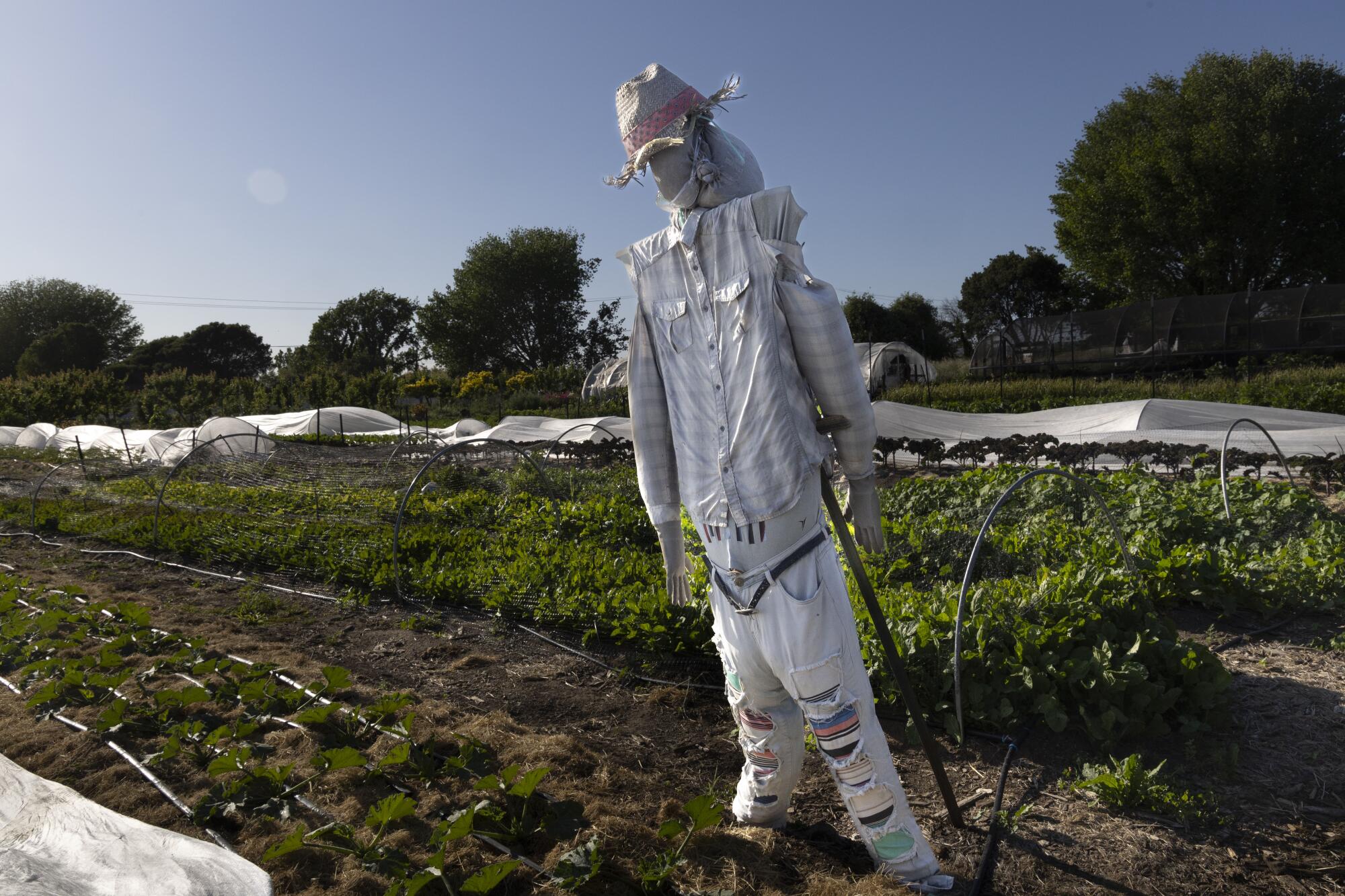
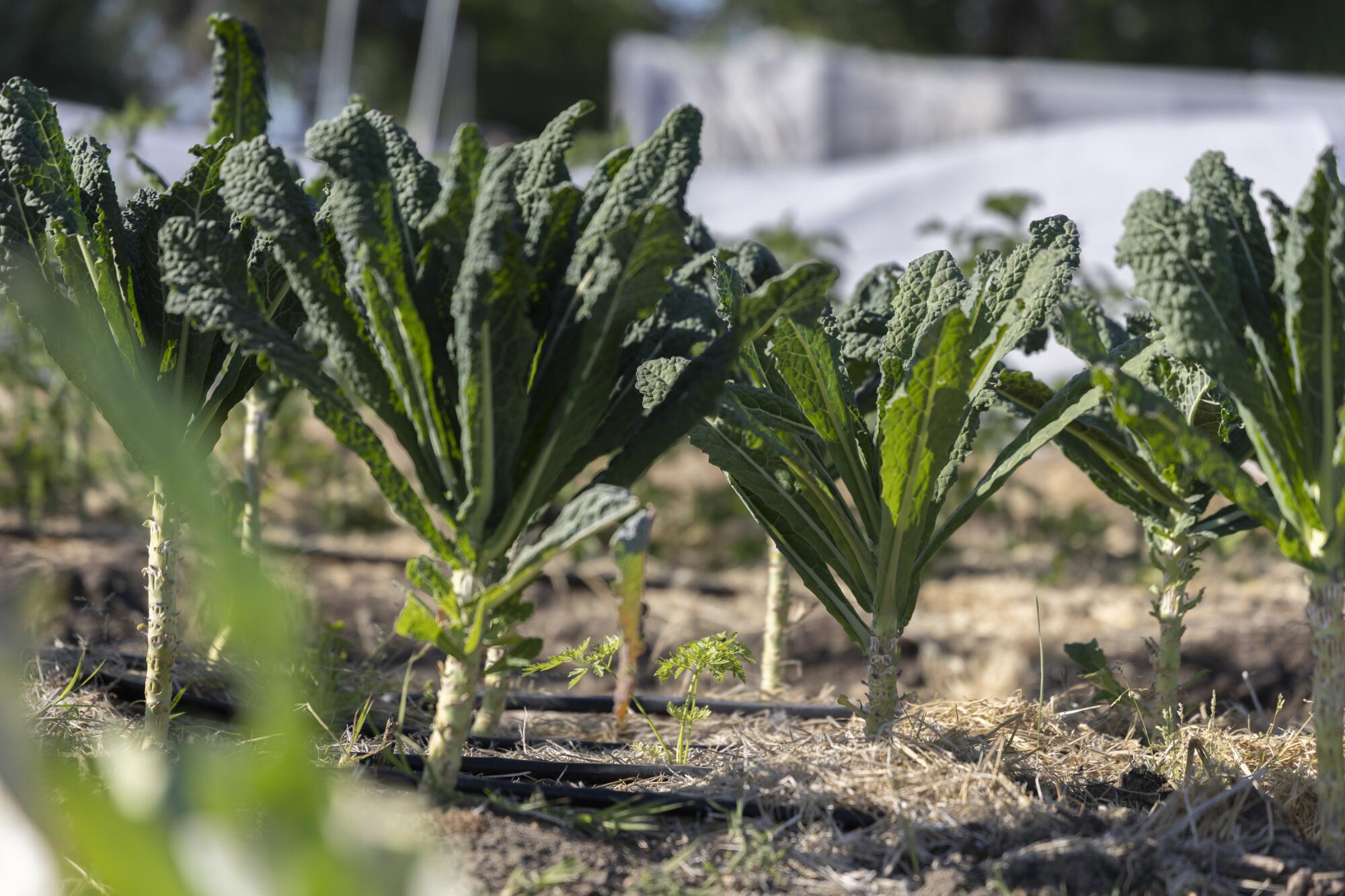
As Robinson and other supporters of Urban Tilth grew increasingly concerned about the proposed warehouses, Contra Costa County Supervisor John Gioia also took notice.
Gioia, who grew up in Richmond and served on the California Air Resources Board, had long been concerned about the effects on air quality from increased truck traffic at distribution center warehouses, so much so that he had pushed for many trucks to be electric.
He also knew that Richmond was among several communities in California already identified as overburdened by sources of air pollution.
And so Gioia took action. He proposed a moratorium on new distribution centers in North Richmond, which the Board of Supervisors approved in December and extended in January.
Projects already approved — including one across the street from Urban Tilth — could go forward.
But everything still in the approval process — including the proposal for Nabeta’s land — is on hold.
Gioia stressed that the moratorium wasn’t intended to crush Nabeta’s dreams of selling her property, and that the land could host other projects, such as light manufacturing.
But for Nabeta, it felt like a wrench in her plans. Rough estimates from industry experts value her land at upward of $8 million. Would it be worth as much without a distribution center? (Nabeta declined to talk much about her real estate transaction. The developer, Panattoni, did not respond to a request for comment.)
Over on the farm, Robinson was grateful for the reprieve, but it didn’t change the overall situation of invading warehouses. And it made her heart sick that her neighbor, whose cause she believed in, was unhappy.
Urban Tilth had offered to buy the land from Nabeta and expand the farm, but Nabeta was already in contract with Panattoni.
The farm wrote her a letter, and delivered it along with honey and fresh cut flowers from the farm. They got no response.
“We understand she needs to retire,” Robinson said. “We are not fighting her, or her family.”
Robinson wants to preserve the “amazing history” of Nabeta’s property, and the legacy of the Japanese American flower nurseries. “It shouldn’t be lost to North Richmond, and mowed under and made into nameless, faceless warehouses.”
“The solution is taking care of Mrs. Nabeta, as well as making sure the community is protected,” she added. “If Mrs. Nabeta is not taken care of, then it’s not a win.”
But so far, the two neighbors and their dream are at an impasse, side by side on two properties steeped in history.
More to Read
Sign up for Essential California
The most important California stories and recommendations in your inbox every morning.
You may occasionally receive promotional content from the Los Angeles Times.









